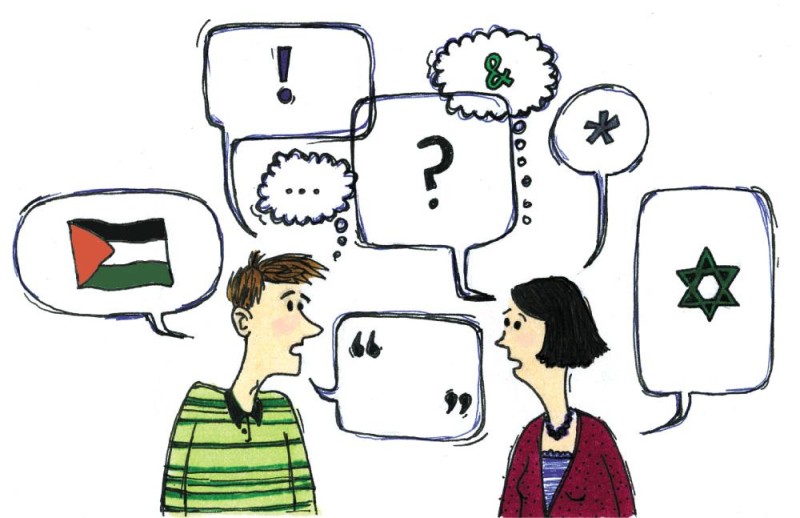
Stop staying silent on divisive issues
Kate Jacobson
Gauntlet Editorial Board
Talk of the Israel-Palestine conflict has consumed public discourse over the past couple weeks. Escalating violence airs on every news network. Pundits have weighed in across the political spectrum. Hashtags like #IsraelUnderAttack and #FreePalestine are constantly trending on twitter.
In Calgary, the debate has already started. Hundreds gathered outside City Hall last Friday to protest the expansion of Israel’s military operations in Gaza. Campus club Solidarity for Palestinian Human Rights is proposing a boycott of Israeli products on campus, which Hillel Calgary — the Jewish student’s organization — staunchly opposes.
As a democratic ideal, debate is meant to protect ideas that challenge conventional power and thought. Public discourse isn’t usually fun, especially with topics as contentious as this one. Our own viewpoints are rarely reaffirmed and we’re required to confront our own prejudices and beliefs. We have to listen to others and admit when we’re wrong.
The conversation on the Israel-Palestine conflict is a difficult one. It’s fueled by emotion and historical narratives. Everyone involved has legitimate grievances. For a lot of people, it’s not just a conversation of theory. The stakes are real, and they’re high.
But that doesn’t mean it’s a conversation we shouldn’t have. Universities are designed for public discourse. It’s where we teach young adults how to represent their ideas and engage with others in a civil society. It’s where we’re confronted with opinions that are different from our own.
Freedom of expression isn’t just for ideas that we find palatable and it doesn’t mean that people are only allowed to have controversial opinions if they keep them to themselves. Debate is meaningless if we can’t express unpopular and distasteful opinions.
Ideas are meant for public discourse. Just because a conversation makes us uncomfortable doesn’t mean it’s not valuable. We can’t force other people not to discuss things because it makes us upset or angry. If university is about learning to be an adult, part of that is being able to rationally discuss something even when you’re emotionally involved.
Holding such a difficult and volatile conversation on the U of C campus should be a mark of pride. Universities are designed to facilitate public debate, even if it’s just students talking about a long-standing conflict half a world away.
The campus debate on the Israel-Palestine conflict will be difficult and it won’t be groundbreaking. But if we can’t have this conversation here, we can’t have it anywhere.
